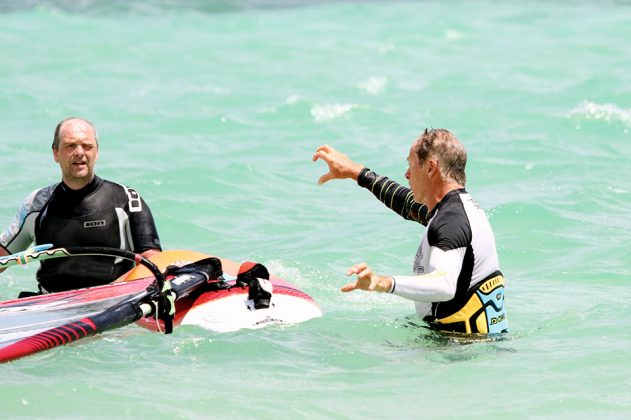Keeping in step with this month’s theme, Harty has something to say about the notion of ‘focus.’
Originally published within the January February ’16 edition.
I have a son who plays cricket. Now parents of sporting offspring will doubtless concur that they like nothing better in the world than to stand on the touchline on a dank afternoon, cheering on their own flesh and blood … so long as their kids are actually involved. That’s the thing with cricket, most of the time, most members of the team are doing bugger all.
In the very junior stages, it’s fine. Everyone bowls and everyone bats. And if you’re batting and get out, you’re not out, you just lose a couple of points and carry on. It all moves pretty fast; only lasts about an hour and you’re home for a pub lunch.
But then my lad made it through the age group squads and found himself playing for the county – suddenly it’s all a bit serious. Proper rules. If you’re out, you’re out and no tears.
For his first county game aged 10, we’d driven to the back of beyond for three hours through weekend traffic. As he prepared to bat, I gave him the following selfless pep talk.
“Right son. I haven’t given up this gorgeous Saturday to watch other people’s kids play cricket. So do NOT throw your wicket away by attempting some crazy shot on your first ball and … focus!” Off he went – head down, a study in concentration. Like a true pro, he let the first ball go past without offering a shot and it thumped harmlessly into the keeper’s gloves. He turned round and gave me the thumbs up. Second ball he charged down the wicket, and with head in the skies took a wild swing and a miss and lost his middle stump.
He walked back and still smiling told me he’d done exactly what I asked which was not to get out first ball. I couldn’t fault the logic. And I had to admit my advice about how and what to focus on was pretty rubbish. It wasn’t so much advice as a threat. It just told him what not to do and nothing about the process of batting.
Fast forward a month or so and we’re in the same situation, except this time I’ve learned my lesson and say nothing as he strode out to the crease apart from ‘good luck.’ An hour later he comes in having scored a ton of runs and led his team to victory. So off I went on a happy rant asking all sorts of questions about how he did it, what his strategy was and what he was focusing on as he faced their dangerously fast opening bowler. He looked at me a bit glazed and said, “Do you think the England rugby team will win this year’s 6 nations?”.
He hadn’t been listening to a word I said and as he revealed on the way home, hadn’t been focusing on anything while he was playing. He wasn’t going through a pre-teen, hormonal strop. He just told me he’d listened to an interview with the England captain Alistair Cook, who was in a rich seam of form, and when asked what he thought about when he was in the zone, he simply said, “nothing.”
Focus … or concentrate
I’m really not sure about the word focus in the context of our sport. Think of someone who’s really focusing and you perhaps imagine a watchmaker with the smallest pair or tweezers or a vascular surgeon tying an impossibly small knot around a blood vessel. Their posture is hunched, still and their expression furrowed and serious.
When you see a windsurfer like that, they are typically in survival mode, compact, hunkered, bouncing along and staring at the bit of ocean three feet in front of them.
Compare that to a wave sailor on song. I watched Levi Siver in a heat of the Aloha classic last night. It looked like he was free sailing – head up, relaxed, smiling, taking it all in, ripping the the good waves, tacking off the ones he didn’t fancy – and all in the intense heat of competition. I wouldn’t so much call him focused as relaxed, happy and alert.
The former golfing champ Craig Stadler was once asked what the secret was to holing a 4 foot putt to win the US open. He replied famously, “Just to not care whether it goes in or not.” The danger when you focus too much is that you try too hard – and in a technical sport like ours, that leads to using too many of the wrong muscles. And doesn’t ‘focused’ suggest to you someone with the blinkers on? That’s not a good place to be when waves are exploding all around. I have a personal axe to grind here. I had a rugby coach who kept screaming at me to ‘focus.’ But he never said what on. So I have it down as one of those all purpose verbal sticking plasters, like ‘get stuck in’, that coaches scream when they’ve nothing useful to say.
The sport of windsurfing surely puts us all in a high state of arousal – that’s why we do it. So what we’re after most of the time are words or devices that bring the heartbeat down and allow us to move and operate smoothly and instinctively. That’s especially hard when you’re learning a tricky move for the first time. The other day I heard an instructor saying, “Focus on your hands!” to someone practising a rig change. After that, all they did was look at their hands. So that didn’t work.
What does work in windsurfing is distraction. Making yourself lead with the head, for example, is a brilliant ‘focus’ because it gets you moving in the right direction and allows other body parts to follow instinctively. Best of all, by looking to the exit of the manoeuvre it stops you focusing on negative outcomes. And there endeth the lesson from someone who, as my family will testify, can’t focus and is terminally distracted.
PH 4th November 2016
PHOTO – Crying ‘focus’ may help … but in an already stressful situation, telling a joke may help even more. Photo Hart Photography


